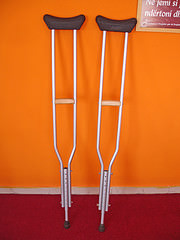
In exchange for these benefits, the employee gives up the right to sue their employer in a court of law for negligence, including pain and suffering.
So what happens if a worker is in the middle of a bankruptcy when they are injured? The answer to this question depends in large part on the type of bankruptcy filed, Chapter 13 or Chapter 7.
Chapter 13 and Workers’ Compensation
Let’s say that our worker is two years into a Chapter 13 when they are injured. The most important thing to do is advise both your Workers’ Compensation lawyer and your bankruptcy lawyer of the fact that you were injured.
The bankruptcy lawyer may need to inform the trustee that you have a change in income that may have an effect on your payments under the Chapter 13 plan.
If, for example, your income is reduced as a result of the Workers’ Compensation claim, then your attorney may be able to help you amend your plan payment to take into account your reduced income.
In addition, if after talking to your Workers’ Compensation lawyer, you foresee a lump sum settlement in the Compensation case within the time period that the Chapter 13 case is pending, this may also affect your plan payments.
Depending on your jurisdiction, the lump sum Workers’ Compensation settlement may also be classified as exempt property – but you would need to discuss this with your bankruptcy attorney, as each state is different. If the lump sum settlement is exempt, then you would be able to keep some or all of your settlement amount.
Chapter 7 and Workers’ Compensation
A Chapter 7 is an entirely different animal, and there is a very short period (usually 120 days) form filing until discharge. Because of this, it is unlikely that you would be injured while in the middle of the case, although this could happen.
Any assets you acquire due to Workers’ Compensation (such as a lump sum settlement) after the date of filing would remain yours, and are not considered by the bankruptcy court.
The more pressing question would be whether you should file a Chapter 7 after you have been injured on the job. You would be best suited to speak with a bankruptcy attorney about this, as the law in each state is different.
Some states may exempt a settlement award for a workers’ compensation case from the estate, while other states may not.
James Hart is a workers comp lawyer and divorce attorney in Cary, North Carolina.
Image credit: net_efekt